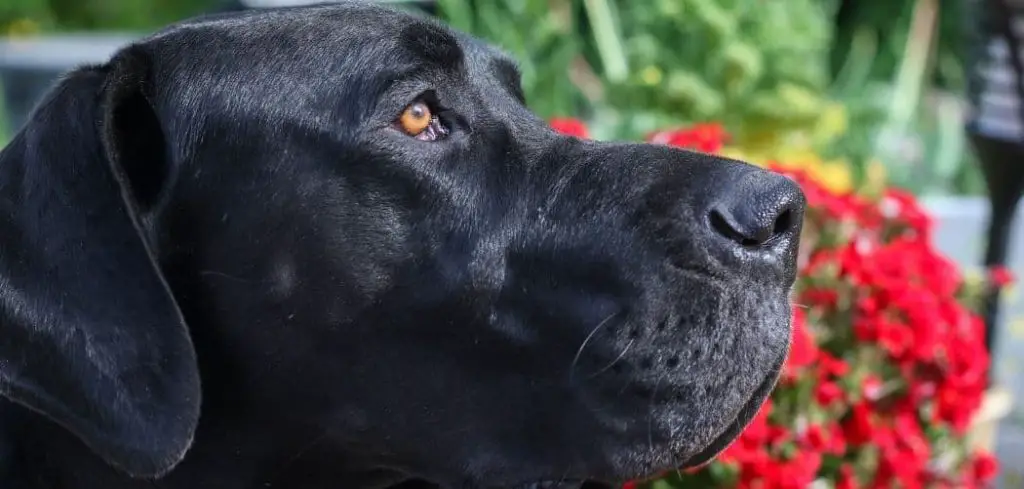When your dog has a gunky eye and suddenly stops eating, it’s easy to feel alarmed. These two symptoms may seem unrelated, but together they can signal anything from a mild irritation to a more serious underlying health issue.
We outline the common causes of dog gunky eye and not eating, what you can do at home, and when to seek veterinary help.
Dog Gunky Eye and Not Eating — Why It Happens
A dog with a gunky eye who also stops eating could be facing more than a simple eye infection. This combination of symptoms may signal a systemic illness, significant discomfort, or a spreading infection that’s impacting their appetite. Causes can range from conjunctivitis and upper respiratory infections to dental problems or pain-related issues.
If your dog is lethargic, avoiding food, and has sticky discharge around the eye, something more serious could be going on.

Common Causes of Dog Gunky Eye and Not Eating
Conjunctivitis (Pink Eye)
Conjunctivitis, or inflammation of the eye’s conjunctiva, can cause a sticky, yellow-green discharge, redness, and squinting. Dogs may feel miserable from eye irritation and avoid eating due to discomfort.
In some cases, if the conjunctivitis is caused by a bacterial or viral infection, your dog might feel unwell overall. This systemic malaise can affect appetite.
Prompt treatment with medicated eye drops can often resolve the issue quickly, but if left untreated, the infection can spread or become chronic.
Read more: Dog Conjunctivitis and Not Eating (What it means)
Upper Respiratory Infections
Dogs with a cold or respiratory infection may develop watery or mucousy eye discharge. These infections often come with nasal congestion, coughing, or sneezing.
The loss of smell from a stuffy nose can cause dogs to ignore food—even their favorites. The gunky eye is one clue that an upper respiratory virus or bacterial infection may be to blame.
Veterinary care is essential to manage symptoms and prevent complications like pneumonia.
Dental Disease
Oral pain from infected or broken teeth can lead to reduced appetite, and inflammation in the mouth can even track upward to the eyes. This is especially common in older dogs or small breeds.
If your dog has a gunky eye on one side only and is also drooling, pawing at the mouth, or refusing food, a dental problem may be at the root.
Dental exams and professional cleanings are necessary to address underlying oral health issues.
Eye Trauma or Foreign Body
A scratch, poke, or debris in the eye can cause irritation and discharge. Dogs may become stressed, and the pain might cause them to stop eating temporarily.
They might squint, rub their face on furniture, or become unusually quiet or withdrawn. If you notice redness, swelling, and discharge in one eye along with appetite loss, urgent vet care is warranted.
Systemic Illness
Serious illnesses like canine influenza, distemper, or even autoimmune conditions can show up as eye inflammation along with widespread symptoms like fever, lethargy, and poor appetite.
These conditions require immediate diagnosis and often supportive care. The gunky eye may be one outward clue of a much deeper problem.
Allergies
Dogs with environmental or food allergies often develop itchy, watery eyes with a mucous buildup. While mild allergies might not affect appetite, more severe reactions or secondary infections can make them feel sick enough to skip meals.
Allergies can also cause nausea, vomiting, or other digestive discomforts. If both eyes are affected and symptoms occur seasonally or after a change in food/environment, allergies could be the culprit.
What to Do If Your Dog Has a Gunky Eye and Isn’t Eating
Keep the eye clean by gently wiping away discharge with a clean, damp cloth. Use warm water and avoid any pressure. This can provide temporary relief until your vet visit.
Offer soft, bland food like boiled chicken and rice to tempt your dog to eat. If they’re congested, warming the food slightly can help enhance the aroma and make it more appealing.
Minimize stress and activity. Keep your dog calm and indoors while they recover. Rest helps the immune system fight off infections.
Avoid over-the-counter human eye drops or medications without veterinary approval. Some ingredients can make things worse or delay healing.
Monitor for additional symptoms such as vomiting, diarrhea, or worsening lethargy. These signs point to a more serious condition that needs prompt veterinary attention.
When to Call or Visit Your Vet
Call your vet if your dog refuses food for more than 24 hours or if the eye is:
Red, swollen, or has thick green/yellow discharge
Accompanied by a closed or squinting eyelid
Paired with fever, coughing, or general lethargy
If both the eye symptoms and appetite loss persist or worsen, veterinary diagnostics are crucial to determine whether it’s an eye condition, systemic illness, or something more complex.
Prompt treatment can prevent complications like corneal ulcers, vision loss, or spread of infection to other organs.
Read more: Dog Has Red Eyes and Not Eating and Lethargic (What’s causing all these symptoms?)
Key Takeaway
When your dog has a gunky eye and isn’t eating, it’s often more than just an eye problem. Whether it’s pain, infection, or a deeper systemic issue, this combo of symptoms warrants attention.
Keep your dog comfortable, offer bland food, and clean the eye gently—but don’t wait too long to involve your vet. Early intervention helps your dog recover quickly and prevents more serious complications.
